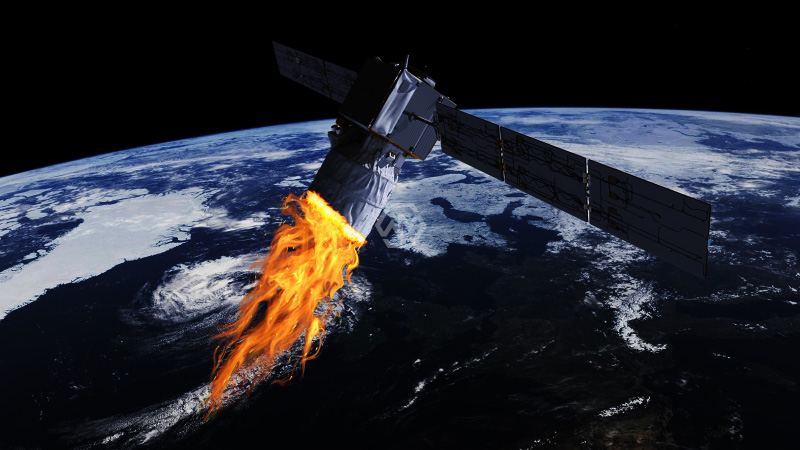The Aeolus satellite, a British-built spacecraft, is about to crash to Earth after completing an innovative mission to study the planet’s winds. To track airflow in any place, at any altitude, all over the planet, the Aeolus satellite blasted a laser across the atmosphere.
Due to the difficulty in making Aeolus function, which took more than a decade to build, the project came dangerously close to failing.
‘Impossible satellite’
The project, which provided the first genuinely worldwide perspective of how winds behave on Earth, from the surface to the stratosphere, was directed by the European Space Agency (Esa).
The Aeolus, however, fell short on both counts because its propulsion technology was insufficient to adequately control its fall back to Earth or guarantee that its hardware would survive to the planet’s surface.
- Aeolus satellite nears Earth’s crash after studying winds using a laser.
- Aeolus’ propulsion technology is insufficient for Earth fall control and hardware survival.
- Esa member states authorize €413 million budget for Aeolus-2 spacecraft construction.
Esa flight controllers have been attempting an “assisted re-entry” by ordering the satellite to perform a sequence of maneuvers that will lower its altitude until it is at a height of 120 kilometers (75 miles). The return signal from the satellite was scattered by air molecules and tiny objects moving through the wind at various elevations.
To match this data, meteorologists modified their computer models, which increased the precision of their weather predictions. The medium-term projections had the biggest effects, and they were crucial throughout the Covid-19 pandemic.
A budget of €413 million (£353 million) has been authorized by Esa member states to start construction on two Aeolus-2 follow-up spacecraft. The international organization Eumetsat, which is in charge of overseeing Europe’s meteorological satellites, will provide an additional financial contribution of €900 million.
It is anticipated that the first of these sequels will debut toward the end of the decade. The British division of aircraft company Airbus will probably once again take the lead in the production of the spacecraft thanks to the UK’s €71 million commitment to the project and its sizable subscription to Eumetsat.



